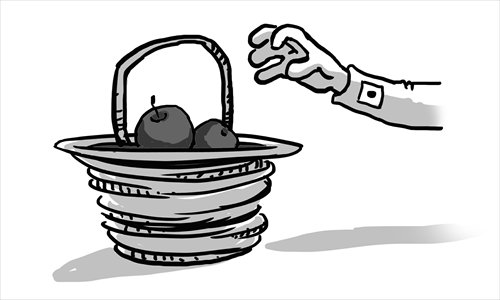Sovereignty must come before impractical plans to share

The situation of the Diaoyu Islands has been escalating since Japan's announcement it would "purchase" the islands last year. Both China and Japan are taking a tough stance, and there is no sign that one will give in to the other.
Under such circumstances, some hope that leaders of both countries can put the Diaoyu Islands under some sort of joint administration with a supranational governing body comprised of Chinese and Japanese staff.
It is understandable that people want to cool the situation, avoid any potential wars, and put the Sino-Japanese relations on a positive long-term footing. However, the proposal is hardly feasible.
In the international law, sovereignty is the right to exclusive authority. No country's sovereignty is to be shared, nor is any country willing to share its own sovereignty with another. There's no precedent for the joint administration of a disputed territory.
China would never accept such an infeasible proposal. China's stance toward the sovereignty of the Diaoyu Islands is clear. Meanwhile, China has sufficient historical and legal documents to prove its sovereignty over the islands.
The US has stated that the Diaoyu Islands are under the administrative authority of Japan, and the US-Japan Security Treaty therefore applies to the islands, although it did not hold its position on the ultimate sovereignty over the islands.
However, the US statement is groundless as it is impossible to have administrative rights over something without also owning it.
Japan even doesn't admit the dispute over the Diaoyu Islands exists, let alone accept proposals to share rights with China. Nor will China ever allow Japan to share its sovereignty of the islands. Before the sovereignty of the Diaoyu Islands is made clear, discussion about joint administration would have no footing.
Therefore, a proposal of joint administration of the Diaoyu Islands is far from being feasible at this time.
In the Diaoyu dispute, the authorities should play a mediating role. Mao Zedong once said that officials should lead the public rather than falling behind them.
The Chinese government has made great efforts on this by being sensible and restrained. China's senior officials have never behaved radically in the Diaoyu dispute.
By contrast, Japanese politicians have constantly uttered radical words over the issue, which has worsened the situation.
It would be better if both China and Japan can sit and talk over the dispute at the table. However, it is Japan that has blocked every possibility for negotiations.
Recently, Japan has sent vague signals to China over the Diaoyu issue. Natsuo Yamaguchi, the leader of the junior coalition party, New Komeito, has suggested shelving the dispute and proposed no military aircraft of either side fly close to the disputed islands in the East China Sea.
It may come from Japan's intentions to cool the situation, but at the same time, it may be the fact that Japan is at a military disadvantage that prompts these statements, as Japan has to face pressure from Russia, South Korea and North Korea as well as the defense of its own airspace.
The article was compiled by Global Times reporter Wang Wenwen based on an interview with Luo Yuan, major general at the PLA Academy of Military Sciences. wangwenwen@globaltimes.com.cn